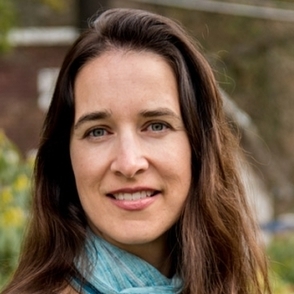
Faculty Experiences Adopting Openness as a Core Value
Presenter: Elizabeth Childs, Royal Royals University
Originally recorded: Jan. 31, 2017, 10-11 am PST
Video no longer available
This is #1 in a series of webinars – Open Education Stories from Across B.C.
Presentation Description
This presentation reports on the experiences faculty members designing and developing a Master’s degree in Learning and Technology when they adopted openness as a core value and key design principle.
A growing body of evidence suggests that adoption of open educational resources (OER), and especially open textbooks, leads to lower costs for students without having negative impacts on academic outcomes (e.g., Hilton, in press; Wiley, Williams, DeMarte, & Hilton, 2016). While the benefits of open textbooks and OER are compelling, little is known about programs that are designed with openness as a core value. What does it mean to embrace open practices and embody an open philosophy at the program and course level within a Master’s program? What are faculty experiences with such an approach? How can the student experience be optimized? In what ways does openness support a diverse student body? What tensions arise and what supports are required to facilitate the transition to an MA degree that not only uses open textbooks but is defined by openness?
The MA program that we will present represents a case study for the open community. In this degree, students contribute meaningfully to digital learning networks and communities in the field. The degree prepares students to work in the creation and evaluation of digital learning environments and apply theoretical and practical knowledge to critically analyze learning innovations and assess their impact on organizations and society. Openness is central to the achievement of this program goal. Openness was adopted as a program value predicated on the philosophical stance that open practices lead to collaboration and the development of a digital mindset that values sharing and cultivates networked learning.
In this case study of an MA program, open practices are evidenced at the course level in the design of the online experience; through the use of “renewable assignments”; authentic assessment opportunities, in resource curation and, through online facilitation approaches. At the program level, it manifests itself in the intentional open spaces that have been designed into the program which require student identification and completion of personalized areas of inquiry. It is also evidenced through the adoption of open pedagogy as a design principle that informs design and delivery decisions at the course and program level
Initial tensions such as coming to a common understanding of openness and what openness can be within the constraints of an institution; how openness supports or detracts from online community; the role of openness in the creation of safe learning environments and, ways to support adjunct faculty for designing for openness will be highlighted in this presentation. This MA program is currently under development so by November additional strategies that have been used to develop a common understanding around openness and open pedagogy at the faculty and institutional level will also be discussed. In addition, various supports that have been used in working with adjunct faculty in course design with openness as a core value will be shared.
View other webinars in the series:
- #2 Faculty and Students working together to create OER: the Open Case Studies Project at UBC – Christina Hendricks, University of British Columbia
- #3 Open Education Stories from Across B.C. – UNBC – Grant Potter, University of Northern British Columbia

Join us for the Open Textbook Summit, May 24-25, 2017 in Vancouver, B.C.
Privacy Note
As required under the data sovereignty provision of B.C.’s FIPPA legislation, this notice is to inform you that this session will be recorded, archived and made available publicly on the web, and that the software used for recording the session (BB Collaborate), uses servers that are located outside of Canada. As a result, a copy of the recording is temporarily stored outside of Canada as part of the recording process.
By participating in this session, you acknowledge that your participation in this session will be recorded by servers located outside of Canada and the recording will be made available openly on the web.
If you wish to participate in this session anonymously, you can participate by entering the room using a pseudonym and refrain from sharing audio and video from your computer.
